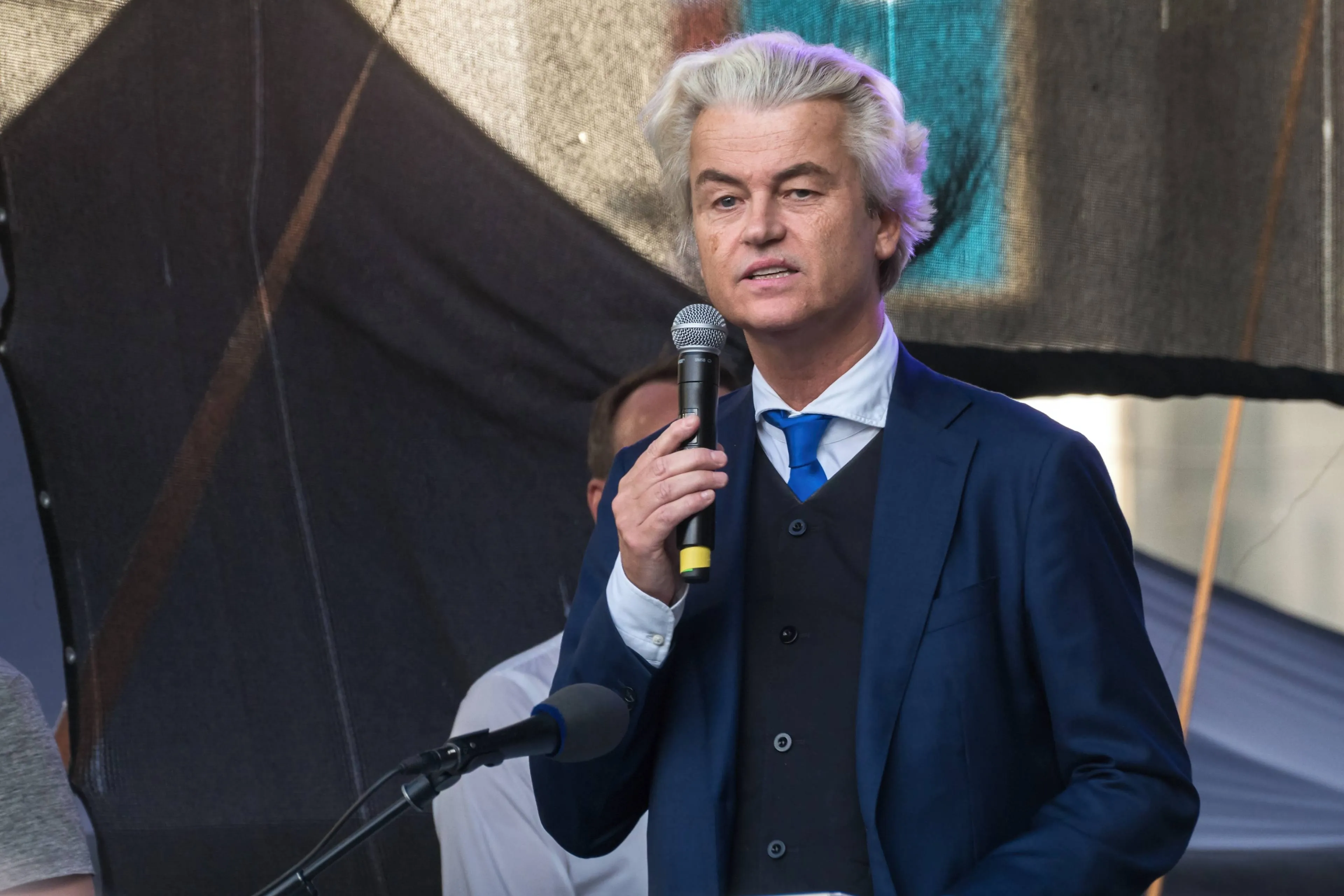Rio+20: Oude Malthusiaanse wijn in nieuwe zakken
Ondanks spectaculaire verbeteringen van de condition humaine blijft de onheilsindustrie maar de 'grenzen aan de groei'boodschap verkondigen en aandringen op draconische maatregelen om duurzaamheid (wat dat ook moge betekenen) te bevorderen.
De gebedsmolens van nakende milieucatastrofes blijven maar doordraaien, ondanks het feit dat de paniekverhalen losgezongen zijn van de werkelijkheid. Zelfbenoemde elites spelen bij dit alles een voortrekkersrol. Voor zover de democratie niet tot door hen gewenste uitkomsten leidt, dient deze aan banden te worden gelegd. In plaats daarvan dient de boodschap van vele NGO's als authentieke wil van de burgers te worden beschouwd. De (vermeende) wereldwijde problemen dienen op wereldwijd niveau te worden aangepakt. Dat betekent dat de macht van de internationale organisaties dient te worden versterkt. Aan het feit dat deze, noch ook de NGO's democratische legitimiteit en verantwoordingsplicht kennen, wordt achteloos voorbijgegaan.
De nieuwste hoogmis van het ecologisme zal binnenkort in Rio de Janeiro, Brazilië, worden opgedragen. Het is de zogenoemde Rio+20-conferentie over duurzame ontwikkeling. Inmiddels hebben zich meer dan 10.000 deelnemers daarvoor ingeschreven.
Onder de titel, The real enemy is humanity itself, wijdde Ben Pile op 'Spiked' een voorbeschouwing aan deze conferentie.
Forty years ago, two ideas about humanitys relationship with the natural world caught the imagination of the richest and most influential people. The first was that the demands of a growing population were taking more from the planet than could be replaced by natural processes. The second, related idea was that there exist natural limits to growth. These two reinventions of Malthusianism became the basis of a new form of global politics, which has sought to contain human industrial and economic development ever since.
Fears about the possibility of global environmental catastrophe and its human consequences, as depicted by neo-Malthusians like Paul Ehrlich - author of the 1968 prophecy, The Population Bomb - and the Club of Rome - a talking shop for high-level politicians, diplomats and researchers - became the ground on which a number of organisations established under the United Nations were formed. In 1972, the UN held its Conference on the Human Environment, and began its environment programme, UNEP. In 1983, the World Commission on Environment and Development (WCED, aka The Brundtland Commission, after its chair, Norwegian politician Gro Harlem Brundtland) was formed, leading to the publication of its findings in 1987 in Our Common Future. Also known as the Brundtland Report, it became the bible of sustainable development.
Having established sustainable development as an imperative of global politics, more organisations and programmes under the UN were formed to deliver it. In 1992, the UN Conference on Environment and Development, the first Earth Summit, was held in Rio, leading to the Agenda 21 blueprint for a sustainable planet, UN conventions on climate change and biodiversity, and the creation of the UN Commission on Sustainable Development (UNSCD). Since then, an entire ecosystem of global, national, governmental and non-governmental organisations has emerged, to advocate and implement the closer integration of human productive life with knowledge about the environment: to observe the limits to growth. The most notable of these is the UN Framework Convention on Climate Change (UNFCCC), under which a global agreement to limit greenhouse gas emissions is being sought.
Maar wat is er nu allemaal terecht gekomen van al het onheil dat ons nu reeds tientallen jaren wordt aangekondigd?
Forty years on, and those predictions of doom have not been borne out. The average life expectancy of a human has increased by 10 years, and the number of infants dying before their fifth birthday has fallen from 134 per thousand to 58. Thus, the human population has nearly doubled, and global GDP has risen threefold. There are more of us, we are healthier, wealthier and better fed. There is vast disparity between what the advocates of political environmentalism have claimed and reality. So why are world leaders set to meet next month in Rio at the United Nations Conference on Sustainable Development? ...
There is, of course, no opportunity for the expression of such ideas. The Rio+20 conference will be a meeting to extend the reach of supranational institutions that are already beyond democratic control. By design, the meeting precludes public engagement. And any recalcitrant actors who do make it to the meeting can expect to be made pariahs. Environmentalism is a form of politics that exists apart from the demos. It superficially aims to resolve the problems that are putatively beyond the reach of normal politics, such as poverty, by promising to meet the merely metabolic needs of the worlds poorest people.
However, this promise comes at a price. The 1972 Stockholm meeting discussed the need for new concepts of sovereignty, based not on the surrender of national sovereignties but on better means of exercising them collectively, and with a greater sense of responsibility for the common good. In other words, the world can be fed, clothed and housed at the cost of autonomy.
This surrendering of autonomy is a price worth paying, according to its advocates, whose argument has been reduced to a neat little slogan: global problems need global solutions. .
Maar is het begrip duurzaamheid te operationaliseren?
[ ] the concepts of global and sustainability are at best nebulous. To what extent are global problems really global? And to what extent can making and doing things sustainably really address problems such as poverty and inequality? Poverty is not, in fact, a problem of too much exploitation of natural resources, but too little. And poverty is not a global problem, but a categorically local one, in which a population is isolated from the rest of the world.
We can only account for poverty and inequality in the terms preferred by environmentalists if we accept the limits-to-growth thesis and the zero-sum game that flows from it. In other words, that there are limits on what we can take from the planet and we can only solve poverty if we divide those limited resources more equitably. Such an argument for reducing and redistributing resources has the reactionary consequence of displacing the argument for creating more wealth.
But to date, the arguments that there exist limits to growth, an optimum relationship between people and the planet, and that industrial society is unsustainable, have not found support in reality. The neo-Malthusians predictions in the Sixties and Seventies were contradicted by growth in population and wealth. And now there is a growing recognition that the phenomenon most emphasised by environmentalists - climate change - has been overstated. ...
Sustainability is a fickle concept. And its proponents are promiscuous with scientific evidence and ignorant of the context and the development of the sustainability agenda, believing it to be simply a matter of science rather than politics. The truth of sustainability, and the meeting at Rio next month, is that it is not our relationship with the natural world that it wishes to control, but human desires, autonomy and sovereignty. That is why, in 1993, the Club of Rome published its report, The First Global Revolution, written by the clubs founder and president, Alexander King and Bertrand Schneider. The authors determined that, in order to overcome political failures, it was necessary to locate a common enemy against whom we can unite. But in fighting this enemy - global warming, water shortages, famine and the like - the authors warned that we must not mistake symptoms for causes. All these dangers are caused by human intervention in natural processes, and it is only through changed attitudes and behaviour that they can be overcome. The real enemy then is humanity itself.
Lees verder hier
http://www.spiked-online.com/index.php/site/article/12456/
http://www.spiked-online.com/index.php/site/article/12456/
Misantropie dus! Weg met ons!
KNAW
Eerder schreef ik over een verzoek van een aantal klimaatsceptici aan het KNAW om een door hen uitgegeven klimaatbrochure in te trekken, wegens de vele onjuistheden die deze bevatte. Daarop is nu een antwoord gekomen van KNAW-president, Robbert Dijkgraaf. Rypke Zeilmaker rapporteerde daarover op Climategate.nl.
De klimaatsceptici beraden zich over een reactie.
---
Voor mijn eerdere DDS-bijdragen, zie:
Ga verder met lezen
Dit vind je misschien ook leuk
Laat mensen jouw mening weten
Lees ook
Loading


